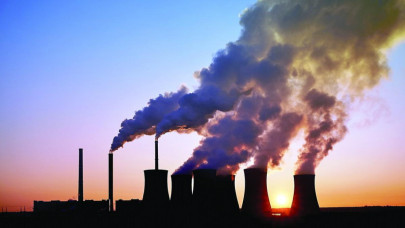Plastic pellets are one of the largest sources of unintentional microplastic pollution. The Commission today proposes that operators act in the following priority order: prevention to avoid any spills of pellets; containment of spilled pellets to make sure they do not pollute the environment; and, as a final option, clean up after a spill or loss event.
”Today's proposal marks an important step in the fight against microplastic pollution. Tackling the unintentional release of plastic pellets addresses a serious problem not only for our environment but also for our health, and helps us achieve the zero pollution ambition of the European Green Deal. When it comes to microplastic leakage, prevention is the only solution”, says Maroš Šefčovič, Executive Vice-President for European Green Deal, Interinstitutional Relations and Foresight.
The proposal includes:
- Best handling practices for operators: depending on the size of the installation or transport activity, operators will have to abide by certain best handling practices. These have already been implemented by frontrunners.
- Mandatory certification and self-declarations: To assist national competent authorities in verifying compliance, larger operators should obtain a certificate issued by an independent third party, while smaller companies should make self-declarations of their conformity.
- A harmonized methodology to estimate losses: to help operators monitor their losses and tackle some of the remaining data gaps, a harmonized methodology will be developed by standardization bodies. It should also increase accountability by increasing awareness of the impacts of different practices on the environment and human health.
- Lighter requirements for SMEs: as the pellet supply chain has a large share of SMEs, lighter requirements will apply especially to micro and small operators.
The Commission's proposal for a Regulation on preventing pellet losses will now be discussed by the European Parliament and the Council. All economic operators, both EU and non-EU, will need to comply with the requirements set out in this Regulation within 18 months of its entry into force.
The Commission will continue to work on reducing microplastic pollution, including in the context of implementing existing and forthcoming legislation on products and waste and leading global efforts to end plastic pollution.
”What can be found both in the depths of the ocean and at the summit of Mount Everest, mostly invisible to the human eye, yet present in our bloodstream, and will not disappear for thousands of years? Yes, that's right, microplastics. Once these small particles of plastic are in our environment, they are almost impossible to clean up. Microplastics are pervasive and we need to stop the pollution at the source. That's why today's proposal aims to prevent the spill of plastic pellets in our environment, for the sake of our ecosystems and health, and in support of economic sectors that depend on healthy soils and clean, plastic-free rivers and oceans”, says Virginijus Sinkevičius, Commissioner for Environment, Oceans and Fisheries.
Microplastics are persistent, very mobile, and hard to remove from nature. They are found all over the world, even in the most remote locations, and in the human body. The risks related to high levels of human exposure are a cause of grave concern. Plastic pellets are found in water and soil, including agricultural lands, and harm ecosystems and biodiversity. Pellets are known to be eaten by a range of marine and coastal species, such as sea turtles, seabirds, and shellfish, and once ingested, they can cause physical harm or death.
The need to address the growing presence of microplastics in the environment was identified in the EU Plastics Strategy, the Circular Economy Action Plan, and the Zero Pollution Action Plan.
The approach to achieving this target is threefold: reduce pollution caused by plastic products (as these degrade into microplastics once in the environment); restrict the use of intentionally added microplastics in products; and reduce unintentional microplastic releases.
Together with the restrictions on intentionally added microplastics adopted on 25 September 2023, the rules adopted today are the first EU instruments specifically designed to tackle microplastic pollution at source and contribute to the target of reducing microplastic releases into the environment by 30% by 2030 established by the Zero Pollution Action Plan.
The Commission is also presenting a brochure on the state of play of microplastic pollution in the EU, summarising developments in EU policy, research, innovation, and investment.












